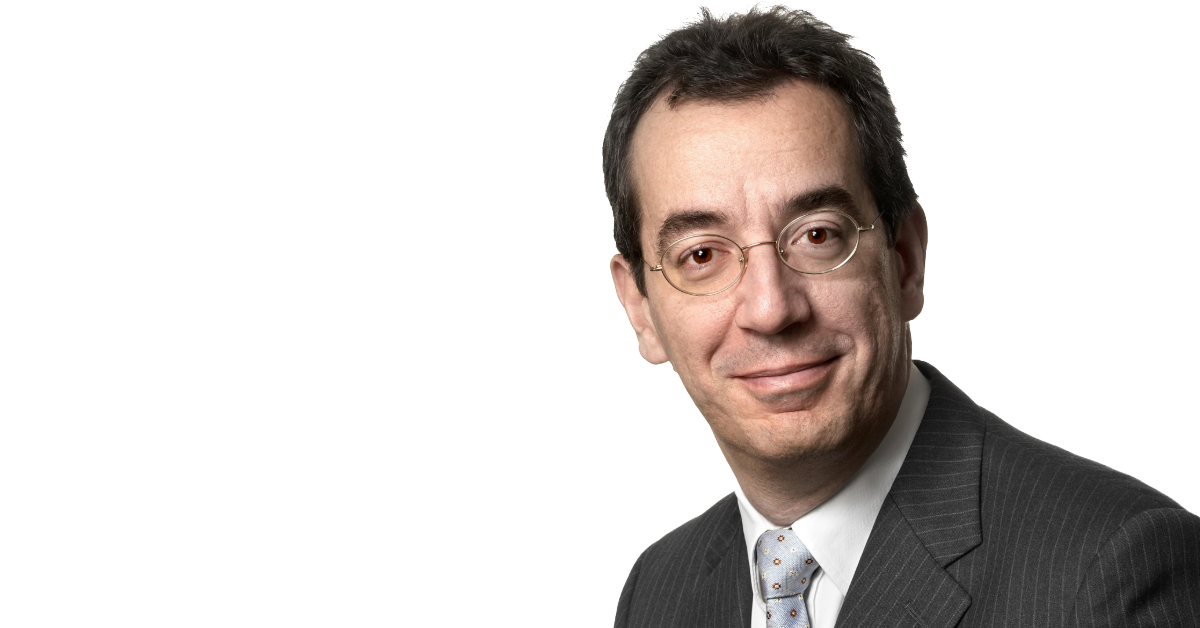Aldo Magada, President & CEO of Zenith shares his thoughts on currency fluctations, connected devices and the need to be digital in 2015
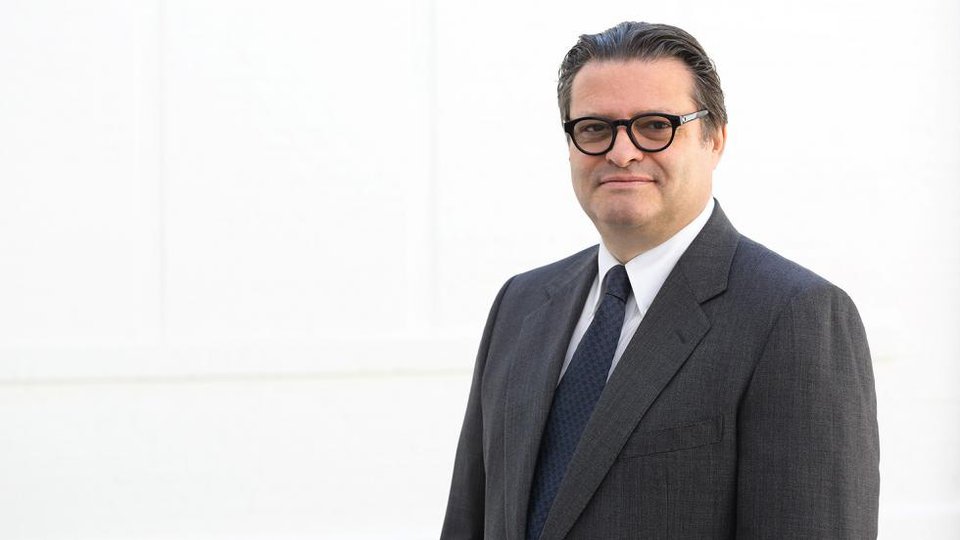
Aldo Magada, President & CEO of Zenith shares his thoughts on currency fluctations, connected devices and the need to be digital in 2015
Aldo Magada, President & CEO of Zenith shares his thoughts on currency fluctations, connected devices and the need to be digital in 2015.
In May 2014, LVMH and Jean-Claude Biver, President of the Group’s Watch Division, confirmed the appointment of Aldo Magada as President & CEO of Zenith. The 35-year industry veteran had been poached from Breitling, where he had been originally appointed to develop sales in China, eventually serving as International Director of Sales & Business Development.
The effusive executive started his career at Richemont in the early 1990s, as a Watch & Jewellery Products Manager at Piaget. He later worked with Jean-Claude Biver at Omega, and eventually headed marketing and sales for Ebel. Since this date, he has worked in consultancy and management roles at Gucci, Technomarine, Reuge and Badollet.
He has been brought to Zenith at a time where the Watch Division of LVMH is relatively small in terms of numbers – just three brands, including TAG Heuer and Hublot – yet represents huge potential. The re-organisation of Watches & Jewellery at LVMH in March 2014 further cemented the group-level belief in the potential of this segment.
Of the three Watch brands, Zenith is perhaps the lesser-understood in the marketplace, something that Aldo Magada remains very aware of, and is making strategic strides to better articulate. We sat down at Baselworld to hear more about his vision for the future.
“ Luxury has come full-circle to embody something truly personal ”
Let’s start off with the concept of luxury. What does it mean in 2015?
It has always been a little bit difficult to define luxury, and for a while ‘luxury’ implied something was ‘high-end’. Today it’s starting to be very different. We saw this at Baselworld with the launch of so many connected watches. Connected watches is not the problem, the issue is Apple, because Apple in many countries now is considered to be a luxury brand.
Luxury was already very difficult to define and now the meaning differentiates even further. As we know it, I think it is an attitude, a feeling, a sensation. It’s no longer just a case of high price merchandise – travel is a good example.
Many wealthy individuals are looking beyond expensive five star hotels to travel where there is nothing, because the experience for them is much more valuable or rewarding than yet another fancy hotel. That is perhaps the essence of luxury today, in that it has come full-circle to embody something truly personal.
Another element, which we have at Zenith, is legacy, patrimony. But for the younger generation, this does not necessarily mean luxury. I think it’s time to just realize that luxury is not less or more in the 21st Century, it’s different.
“ Our challenge is to shorten the time it takes for the taste of luxury consumers to mature ”
And statistically the ultra wealthy are becoming younger and younger, more culturally diverse than ever before. How is this shift affecting your business?
They are and as yet, they are lacking luxury education. They are very well educated academically but they have not had sufficient time to understand luxury. This maturation will come with time.
Today the people that have millions or billions of dollars did not inherit it, they did not grow up in a world of aristocracy, they grew up in a world of hard work. So when they make their millions they go for the big brands that they know, that they know signifies a certain level of status.
It’s very much like wine. If you are wealthy and you begin your journey, you go for the Premier Cru. You don’t care about the price because it’s the best of the best. But when you start to taste wine you develop your own style and appreciation, you start to be much more discerning.
People don’t necessarily change their tastes but they do start to evaluate brands beyond their products. They seek to understand the heritage, the experience, the legacy and the craft, which is where Zenith comes in. Our challenge is to shorten the time it takes for luxury consumers to arrive at such maturity.
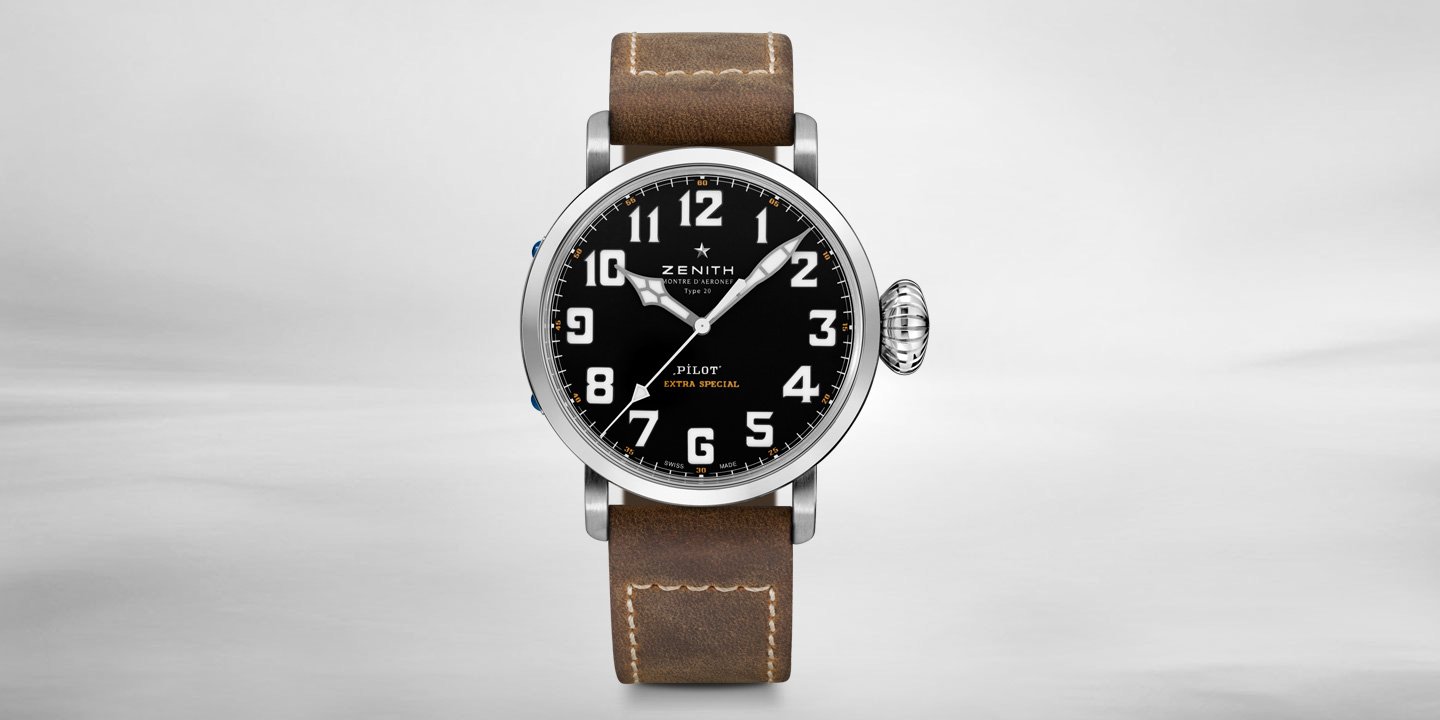
Zenith Pilot Type 20 Extra Special Bronze
Which is not an easy task, particularly when the wealthy lead increasingly nomadic lifestyles.
Travel retail has become hugely important to the luxury industry. Before it was nothing but Duty-free in some countries where you had real duties and there were cost savings to be made. Today people want to buy when they have desire to do so and you have to be there.
As you said they are traveling extensively, living their lives between key international cities. They are not necessarily ‘from’ places anymore, they have houses all over the world. These are real consumers who shop at the airport because they finally have time to do so.
Travel retail is increasingly like mobile shopping. There could be someone buying in Hong Kong, who one week later needs after-sale service in New York, but will be travelling to Paris and needs the product delivered there once it has been tended to. And we have to prepare for this.
At Zenith we are putting together more services and continuing to focus on creating the exceptional products that we already produce. More and more the key issue in watchmaking is service, and consistency of good service, it can be a real competitive advantage.
“ The wealthy are traveling extensively, living their lives between key international cities ”
What about pricing? Production? How many pieces are you making per year?
That figure is something we don’t tend to share, but I can say two things. The price position of Zenith gives the brand a somewhat natural limitation. We are only selling manufacture products with an entry-level price of over €4000, so already a significant market segment cannot afford our brand.
Unfortunately the brand is not well known enough or image-clear enough for the consumer yet to demand more than we currently produce. Zenith is not a workshop, we will never be a small brand producing less than hundred pieces of horlogerie per year. We have products that will always be produced in the thousands.
But we have a lot of work to do at Zenith, before we reach mass awareness. When Zenith will be so well understood in terms of image, awareness, turnover, perhaps the time will come to think about how much we produce. Or to move into a new category, given that we have the backing of LVMH. But probably not while I am president, it will take some time.
“ We have a lot of work to do at Zenith, before we reach mass awareness ”
What about distribution? Does eCommerce have the potential to disrupt where your products are sold?
You can no longer afford to ignore the Internet or eCommerce. We understand that and hope everyone else does to. Before it was a less trusted market place, lots of second-hand, grey-market, parallel sellers. Now it is a network that we have to pay attention to, which is a key mark of convenience for the global traveler.
These consumers are everywhere, with very little pattern as to where they will be next. It makes them difficult to target. But the Internet poses a wonderful solution, in that no matter where they are, at whatever time it is, they are able to learn about our products. And maybe they will go to a store and try, they will touch they will feel.
But maybe when they decide to purchase it is 1am in Dubai, and we need to be there with them. When the customer loves a product, they should be able to buy it when they want, at the time they want, the way they want, in the currency they want.
At Zenith, we are not ready for this. We are still very wholesale oriented, and boutique oriented for the time being. Even though we belong to group who has thousands of boutiques, and great retail brands, we are not a retail operation.
We have 21 boutiques. We are developing retail but we are developing right now what we have and then we expand when it makes sense, especially in Europe and the United States. eCommerce is an important project at a group level, so we are lucky that LVMH will support our jouney.
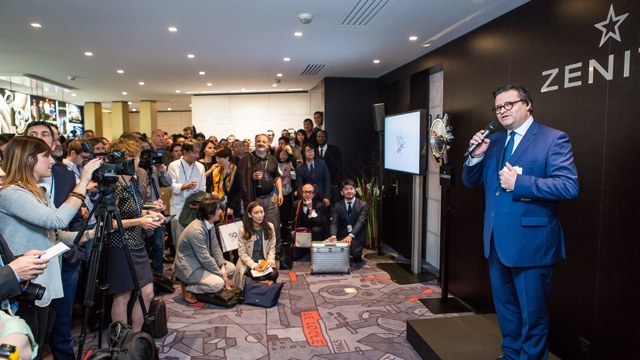
Zenith at Baselworld, Souce: WtheJournal
What about from a marketing standpoint, digital marketing, social media? Do you feel that that brings something to your brand?
It’s a need I lament the fact that we were not active on social networks. I have just appointed an online marketing manager, as for me, the time of ‘advertising’ – in the historical sense of the word – is over. In the 80’s you had great advertising and people were listening, now they want to talk, they want to have a conversation.
Now you have to engage, you have to be on the same level, you have to discuss, you have to listen, and you have to understand each platform. We have just launched Instagram, and we are working there in a very different way to Facebook, Twitter or Pinterest.
Essentially, the conversation will happen without you if you don’t join in. Social neworks, blogs, forums, they have all become an important source of peer recommendations. It’s like an eternal dinner party conversation when you discuss the price, the product, the quality, the story, but now you do it online.
“ Digital is a must. I lament that we were not very active on social networks ”
The hot topic at Baselworld in 2015 was undoubtedly wearables. What are your thoughts?
Connected watches will have an impact on the watch industry, definitely. On the mechanical watch industry I’m not sure. Not because I am pretentious, not because I think we are untouchable, but we must remember that there are likely to be only 2.5 – 3 million high-end mechanical watches on the market.
The watch market however could be up to 500 million pieces. Whereas smart devices could be two or three million this year, until the Apple Watch will launch and maybe this number will rise to 30 or 40 or 50 million, depending on the price point. But as you can see, the numbers tell their own story.
What it will change is the way that we are marketing our product. And ultimately, I hope that it will help raise awareness of watchmaking culture with the younger generation. My daughter is 21 and she has never worn a watch, she doesn’t see the need. But at the very least, the smartwatch will put something on their wrist, which we hope is an opportunity.
Above all we need to avoid the panic we experienced during the Quartz crisis. At the time Zenith had an American shareholder, Zenith Electronics, who switched all our production from mechanical to quartz. It didn’t work, so we have to be careful how influenced we are by the world around us.
We still very much have a value proposition but what we have to do is re-invent our marketing, as consumers are changing. We just have to be clever, which is part of the job!
“ Connected watches will have an impact on the watch industry, definitely ”
Are there any particular markets you feel cautious about this year?
Obviously the Ukraine, it is a big market for high-end pieces and it is still in a war situation. The ruble in Russia makes this market more or less silent, which can be expected. When you have a 50-70% increase or even a doubling of prices, they can’t be expected to spend. They have lost 50% of their buying power in such a short time.
There are questions about China and indeed it is less easy than before, but it will remain a key luxury market. Today there is no guaranteed audience, its more complicated than opening a store and immediately having customers, but there is still huge potential for development.
Otherwise there are many opportunities. Europe is picking up and I feel that confidence is coming back. It’s not a question of money, its always a question of confidence. First the currency problems make people very confused about where they can find watches at the best price.
And for a while the Swiss retailers just couldn’t compete against the Euro retailers, and the Euro retailers struggled against the US Dollar. And then you can factor in the Yen and the Ruble and it becomes very complicated. But Zenith has been around for 150 years and survived more than one crisis, so I remain positive that we can navigate this landscape.
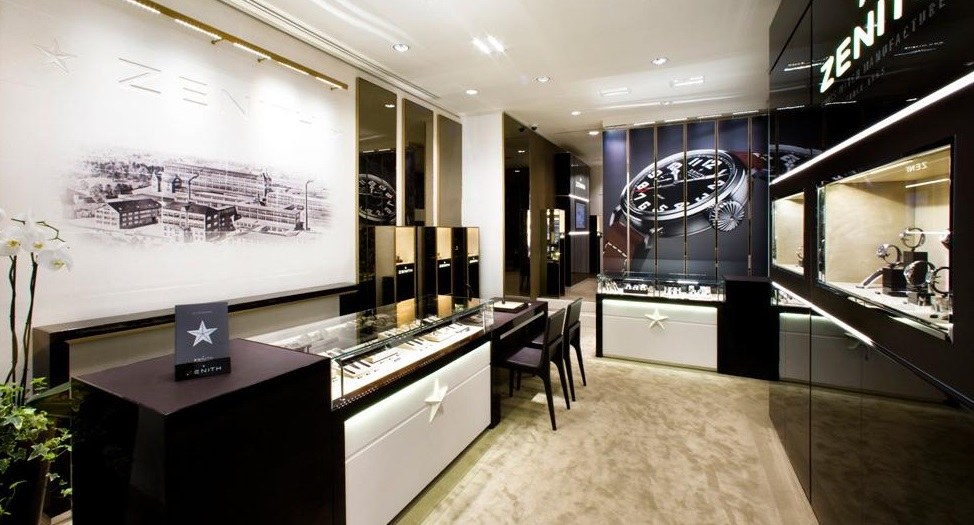
Zenith boutique, Prague
Chanel has just announced a global pricing strategy for some of its iconic handbags. Do you think others will follow suit?
It’s a great question. For years, in certain markets, pricing was too high. Now customers have more information, they are clever and they won’t buy in specific markets because they know the price is much lower elsewhere. But brands have to be very careful in making dramatic adjustments to their pricing.
Zenith has always been very competitive, but when you drop your price by 20% I believe you give the customer the impression that you have been cheating them. And I’m not sure to discount a product like ours, by 20%, will necessarily increase the volume of our sales.
Currency is an unavoidable nightmare today because it changes everyday. But to lower the product in some markets gives that market the impression that the brand was just toying with the consumer. And in the case of Chanel, I don’t think they need to reduce their price to get market share, so I’m not really sure of the benefit.
“ For years, in certain markets, pricing was too high ”
What is the next opportunity you would like to seize with Zenith?
Well the big question mark for us is how we can speed up the growth in Europe and US, and I think that the U.S. represents a great opportunity for Zenith. We had some challenges as the owner of Zenith Electronics held the right to the name being used on Watches. But thanks to LVMH we have moved passed this and we can use it again.
I also believe we have a big opportunity in Australia. There are a lot of wealthy people there and not a lot of watch brands making a big push, so we want to be there to take part in the local market. But also the travel retail market there as there is a huge influx of wealthy tourists from Asia, and even the U.S. and Europe.
For more in our series of conversations with Luxury Leaders, please see our most recent editions as follows:
– In Conversation With Fabienne Lupo, President, Fondation de la Haute Horlogerie
– In Conversation With Suzy Menkes, International Vogue Editor
– In Conversation With Gerald Lawless, President & Group CEO of Jumeirah Group








